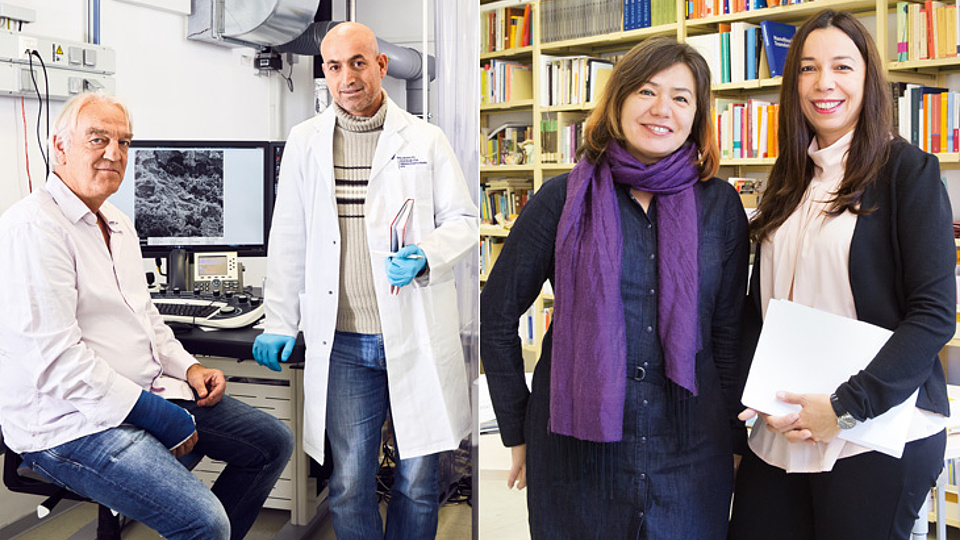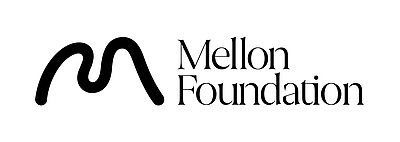Jump to the content
- {{#headlines}}
- {{title}} {{/headlines}}
17TH CALL FOR APPLICATIONS
Applications to the Philipp Schwartz Initiative can now be submitted via the online portal. Please also refer to the sections Who is eligible to receive a Philipp Schwartz Fellowship? and Application and selection procedure on this page.
Application deadline: 13 February 2026
Announcement of the results: End of May 2026
Start of funding: from 1 July 2026
It is expected that up to 37 fellowships can be awarded.

Contact
Head of Division Philipp Schwartz Initiative and Academic Freedom
Frank Albrecht
Programme Director Philipp Schwartz Initiative
Cornelia Hörtner
Senior Programme Coordinator
Katja Machacsek
Phone: +49 228 833 182
Programme Officers
Judith Dömer-Warneke, +49 (0)228 833 417
Sandra Grziwa, +49 (0)228 833 574
Nicholas Jason Miniaci, +49 (0)228 833 578
Bianca Schneemayer, +49 (0)228 833 166
Lena Vos, +49 (0) 228 833 596
Inspireurope+
Sandra Grziwa
inspireurope[at]avh.de
For Press Inquiries
presse[at]avh.de
Phone: +49 228 833 144
Philipp Schwartz Initiative for researchers at risk
Due to his Jewish faith, the Austrian pathologist Philipp Schwartz lost his professorship in Frankfurt in 1933. He emigrated to Switzerland and founded the “Notgemeinschaft deutscher Wissenschaftler im Ausland” – Emergency Society of German Scholars Abroad. In 2015, the Alexander von Humboldt Foundation and the Federal Foreign Office chose to name the programme they launched after him: the Philipp Schwartz Initiative. The programme allows researchers who are subject to significant and continuous personal threat in their country of origin to continue their work at German universities and research institutions.
In the context of the Initiative, the Humboldt Foundation cooperates closely with international partner organisations such as the Scholars at Risk Network, the IIE Scholar Rescue Fund and the Council for At-Risk Academics. The Initiative is financed by the Federal Foreign Office, the Alfried Krupp von Bohlen und Halbach Foundation, the Andrew W. Mellon Foundation, the Fritz Thyssen Foundation, the Gerda Henkel Foundation, the Klaus Tschira Foundation, the Robert Bosch Stiftung, the Stifterverband and the Stiftung Mercator.
Our sponsorship
The Philipp Schwartz Initiative enables universities and research institutions in Germany to host researchers at risk on the basis of a full fellowship. Accordingly, host institutions receive funding which is composed of two components:
Fellowship amount: Sponsorship covers a fixed-amount fellowship. It is earmarked for a period of up to 24 months; application may be made during the initial fellowship period for an extension of up to 12 months in the framework of a co-financing model.
Allowance for host institution: The host institution receives a lump sum allowance of € 20,000 for each individual sponsored.

The Philipp Schwartz Initiative marks fifth anniversary

Who is eligible to make an application?
Applications may be submitted by the following categories of academic institutions in Germany only:
- public and state-recognised universities
- Max Planck Institutes, Helmholtz Institutes, Leibniz Institutes, Fraunhofer Institutes
- federal and federal state research institutions
- other research institutions that can convincingly demonstrate their research portfolio and structures
Institutions that would be interested in hosting researchers at risk but do not have anyone specific in mind can approach the Scholars at Risk Network and Council for At-Risk Academics, which may be able to help find suitable candidates.To this end, Scholars at Risk has published a list of researchers with confirmed risk who are currently seeking placement in Germany: https://www.scholarsatrisk.org/scholars-seeking-germany/
Please note that researchers cannot apply for this programme directly. Interested researchers should contact potential host institutions in Germany that can then make an application.
Who is eligible to receive a Philipp Schwartz Fellowship?
Researchers who are demonstrably at risk – irrespective of discipline and country of origin – are eligible for sponsorship under the Initiative. At-risk status can be verified either by
- a residence status in the context of an asylum-granting procedure within the EU that confirms a recognised threat
- or a credible threat assessment issued by a Due to the various global crises, our partner organisations SAR (email: sar-psi@nyu.edu; requests must be submitted by 19 January 2026 at the latest) and CARA (email: info@cara.ngo) can only process a limited number of risk assessments. We advise you to contact our partner organisations as soon as possible. Please note that requests for risk assessments can only be made by nominating institutions.third party.
Threat assessment:
Due to the various global crises, our partner organisations SAR (email: sar-psi[at]nyu.edu) and CARA (email: info[at]cara.ngo) can only process a limited number of risk assessments. Requests to our partner organisations must be submitted by 19 January 2026 at the latest. We therefore advise you to contact our partner organisations as soon as possible. Please note that requests for risk assessments can only be made by nominating institutions.
If you are nominating individuals from Belarus, Russia, Azerbaijan or the Central Asian countries, please email us at schwartz-initiative[at]avh.de.
For nominees from Afghanistan, Sudan and Ukraine, a self-report on their at-risk status is sufficient (one to two pages in German or English, written and signed by the nominee).
We would like to remind you that risk can also be documented by other credible third parties. Please refer to our handout (PDF) on threat assessments and contact us before requesting a threat assessment from a third-party organisation.
Candidates for a Philipp Schwartz Fellowship must, moreover, fulfil the following criteria:
- have completed a doctorate or comparable academic degree (PhD, CSc or equivalent); in the case of legal or medical doctorates, provide evidence of equivalence to a research PhD
- not be or have been resident outside their own country for more than five years at the time of application; researchers who hold German university entrance qualifications (“Bildungsinländer”) are not eligible
- have the language skills required to successfully conduct their research projects
- have academic qualifications (e.g. publications)
- have the potential to be integrated in the (broader academic) employment market
Researchers who have already received sponsorship under the Philipp Schwartz Initiative or who have access to residence in safe countries due to dual nationality or other circumstances (e.g. marriage to an EU citizen) are not eligible for sponsorship; the same applies to German citizens. Multiple nominations of one and the same individual by various potential host institutions are not permissible.
Application and selection procedure
All application documents must be submitted exclusively via the online portal which you can access by clicking on the "Start online application" button in the right-hand column.
We kindly ask for your understanding that only complete applications, consisting of a submitted framework form and the individual nominations, can be considered.
Please find the relevant application documents here for your information and preparation:
- FAQ collection “How to apply” (German only) (PDF, 554 KB)
- Requirements for threat assessments (PDF, 76 KB)
- Fellowship guidelines (German only) (ZIP, 1 MB)
- Concept by the applicant institution for the creation of a sustainable support infrastructure for threatened researchers* (PDF, 57 KB)
- List of questions for the statement by the academic mentor* (PDF, 85 KB)
- Guidelines for research proposals (PDF, 81 KB)
- Examples of publication list and CV* (PDF, 184 KB)
- Online application forms (samples only, please do not fill in; subject to change) (PDF, 492 KB)
- FAQ collection “How to apply” (German only) (PDF, 554 KB)
All documents are also available in the online portal. Documents marked with an asterisk* can be prepared offline and uploaded in the online portal later.
In addition, the following documents are required:
- Documentation of at-risk status (threat assessment) (see section “Who is eligible to receive a Philipp Schwartz Fellowship?”)
- Proof of the research doctorate (e.g. doctoral certificate) or confirmation of equivalence (e.g. in the case of medical or law doctorates) by the head of the institute or department or a document examination office of the applicant institution; if a certificate is not available in German or English, a professional translation is required (including name of translator and signature; no self-translations).
We kindly ask you to submit all application documents exclusively via the online portal. Should it be necessary in exceptional cases to send documents by e-mail correspondence, we urgently request you to encrypt them in view of the vulnerability of electronic communication and the sensitivity of the data transmitted. Alternatively, you can provide documents via secure download link.
Please find further documents relevant to the funding in the "Funding and reporting documents" section on this website.
After submission of the applications and expiration of the application deadline, a multi-step selection process follows. The regular time frame is shown in this graphic.
The decision on which applications are approved is taken by the Humboldt Foundation’s relevant, independent Selection Committee on the basis of the application package submitted. The selection is made according to the following central question:
Does the impression arise that from the combination of the
- the concept of the host institution
- the professional fit between the guest and the intended scientific mentor (also with regard to the research project)
- scientific qualification of the guest
- commitment of the host institution to the nominated person
- concrete support measures on the part of the host institution and the mentor
- perspectives for the time after the end of the funding
a promising new start in a scientific or science-related career in Germany, another country, or the country of origin beyond the Philipp Schwartz Fellowship seems likely?

Online information event on the administrative implementation in the Philipp Schwartz Initiative of 3 May 2023
Funding and reporting documents
The following documents apply to all grants in the main programme and in the country-specific special programmes of the Philipp Schwartz Initiative (unless otherwise specified).
All documents are currently available only in German. English versions will be provided.
Please note: English documents will be provided for information purposes only. Only the German versions are binding.
- Philipp Schwartz Initiative Fellowship Guidelines (in German only; English version will be provided) (PDF, 439 KB)
- Appendix 1: ANBest-P (in German only) (PDF, 140 KB)
- Appendix 2: BNBest-AA Inland* (in German only)
- Appendix 2 before 2025: BNBest-AA** (in German only)
- Appendix 3: Form Financing plan (in German only) (XLSX, 20 KB)
- Appendix 4: Form Fellowship calculation tool (ZIP, 35 KB)
- Appendix 5: Form Request of funds/Payment plan (in German only) (ZIP, 72 KB)
- Appendix 6: Forms Application for benefits for fellows with a disability or chronic illness (in German only) (ZIP, 218 KB)
- Appendix 7: Forms Reporting documents (in German only) (ZIP, 299 KB)
- Appendix 8: Application and reporting forms co-financed extension (in German only) (ZIP, 235 KB)
- Appendix 9: Information sheet “Dealing with digital risks” (in German only) (PDF, 95 KB)
- Appendix 10: Rules of good scientific practice, procedures and sanctions for misconduct (in Germany only) (PDF, 117 KB)
- Appendix 11: Information sheet “Subsidy towards the cost of health and liability insurance” (in German only) (PDF, 124 KB)
*for all approvals with approval periods starting on or after 1 January 2025
**for all approvals with approval periods beginning before 1 January 2025
The programme line “Philipp Schwartz Bridge Fellowships” has been completed. The report documents can be found here:
War against the Ukraine: support for researchers at risk
In addition to the main programme Ukrainian researchers are funded through the MSCA4Ukraine initiative. The European Commission has tapped the Alexander von Humboldt Foundation, together with its partners Scholars at Risk Europe hosted at Maynooth University, Ireland and the European University Association (EUA) to conduct the new programme for which the EU is providing €35 million in funding. Fellowships are already running and applications are no longer open.
Further information
In order to support and offer sanctuary to researchers at risk, universities, research institutions and science organisations in Germany, under the responsibility of the Humboldt Foundation, joined together on 20 September 2016 in Bonn to establish the Germany Section of the global Scholars at Risk Network. Until 31 March 2028, the Humboldt Foundation is hosting the section’s secretariatand acting as its central contact point.
- Online seminar on 3 February 2021 on the programme updates to the Philipp Schwartz Initiative (MP4, 492 MB)
- Scholars at Risk Network – Germany Section
- More sponsorship opportunities for researchers at risk
- Information for universities and research institutes
- Publication: A New Beginning - Philipp Schwartz Initiative for Researchers at Risk (PDF, 8 MB)
- Evaluation of the Philipp Schwartz Initiative
- Presentation online seminar (May 2023) on the administrative preparation and implementation in the Philipp Schwartz Initiative (in German only) (PDF, 295 KB)
- Video online seminar (May 2023) 2 on the the administrative preparation and implementation in the Philipp Schwartz Initiative
Further donations:
We should like to thank all our private donors for supporting the Philipp Schwartz Initiative, especially for the generous Buschmann-Simon donations.










